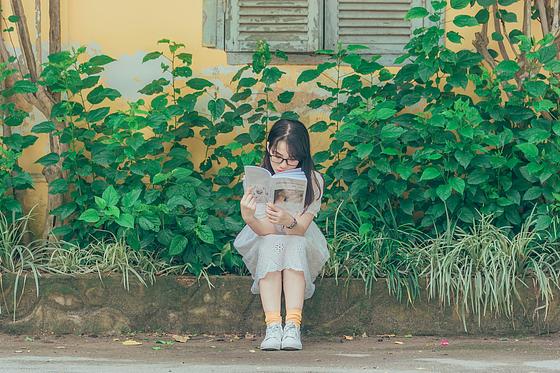I'm sure when most people think of news, the first thought that comes to mind is: boring, depressing, biased, gloomy. Despite being in the golden age of information, it feels like our generation is divided. We have those who are extremely kept up to date with what's going on in our world.
However, we also have those who are extremely uninformed about what's even going on in their hometowns. That being said, if you have enough time to sit down and read your favorite romance novel from Jenny Han, then I'm sure taking 10 minutes out of your day to consume what's going on outside our little bubbles shouldn't be too hard. Still not convinced? Well, here are a couple reasons why you should give reading the news a try!
Let us slide into your dms 🥰
Get notified of top trending articles like this one every week! (we won't spam you)Staying Informed
Reading the news is crucial for you to stay informed about current events and what is happening in the world. Whether it's local news, national headlines, or global issues, being aware of ongoing events helps you understand the context in which you live. It allows you to be part of conversations and discussions and keeps you up to date with developments that may affect your lives (Like if an asteroid was going to crash on Earth). Reading the news helps you develop a broader perspective and enhances your understanding of various issues.

Take the Quiz: Which Indian city is the perfect holiday spot for you!?
Let's match you with an Indian city that you would love!
Developing Critical Thinking
News articles often present different perspectives on a given topic. By reading the news, you can develop critical thinking skills by evaluating information, analyzing arguments, and weighing evidence. It helps you learn to distinguish between facts and opinions, recognize bias, and consider multiple viewpoints.
The ability to think critically is essential in today's information-rich world. It empowers teenagers to make informed decisions and form their own opinions based on reliable information.

Developing Media Literacy
Speaking of thinking critically, reading the news enables you to navigate through various sources, evaluate their credibility, and identify reliable information. In today's media landscape, news literacy is essential, which is where thinking critically comes into play. You learn to distinguish between reputable journalism and misinformation or biased content. These skills are vital for being discerning consumers of news and media, equipping you with the tools to make informed decisions and avoid falling prey to misinformation.

Expanding Cultural Awareness
News provides insights into different cultures, societies, and global events. By reading news from various sources, you can broaden your understanding of diverse perspectives, lifestyles, and experiences. This exposure fosters empathy, cultural sensitivity, and a greater appreciation for the world's interconnectedness. It promotes a global mindset and helps you navigate an increasingly diverse and interconnected world.

Foster Civic Engagement
Reading the news can inspire you to become actively engaged in your community. By learning about social, environmental, and political challenges, you gain the knowledge and awareness that can motivate you to take action. You might feel compelled to participate in discussions, attend community meetings, volunteer, or support causes they are passionate about. Informed citizens are more likely to become actively involved in shaping their society and contributing to positive change.

Personal Growth
Engaging with news and current events contributes to teenagers' personal growth. Staying informed about the world allows you to expand your knowledge and intellectual horizons. It provides them with a broader perspective, enabling them to engage in meaningful conversations and contribute to discussions on various topics.
Additionally, news consumption fosters a sense of responsibility towards society, encouraging teenagers to be informed and engaged citizens. It promotes lifelong learning and curiosity about the world.

Even though there is a misconception that reading news is for oldies, there are so many ways to digest news in more entertaining and shorter forms than a 1000-word article. According to the Pew Research Center, a little under half (48%) of U.S. adults say they get news from social media "often" or "sometimes." Some unconventional news sources are used more than others. Twitter, for example, is used by 23% of U.S. adults, but more than half of those users (55%) get news on the site regularly.
On the other hand, though widely used, YouTube sees a smaller portion of its users turning to the site for news regularly (30%). The point is you can always read the news anytime and anywhere, which is why you should at least try. But remember to check reputable news outlets, fact-check information, and be aware of potential biases. If you know any good news sources, don't be afraid to share them in the comments!












